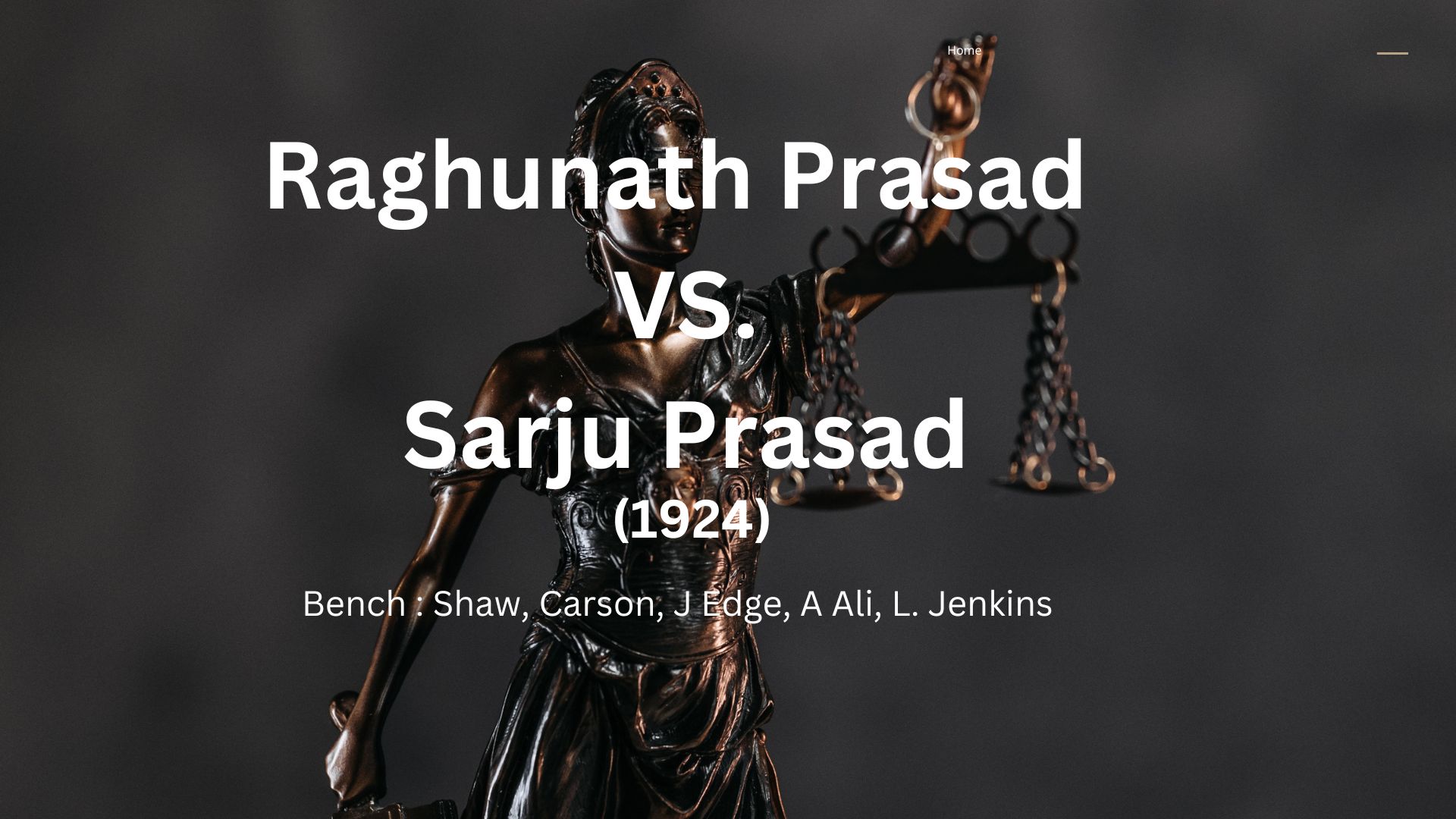
- The concept of undue influence is critical in assessing the validity of contracts under the Indian Contract Act of 1872.
- The landmark case of Raghunath Prasad vs. Sarju Prasad explores the intricacies of Section 16 of the ICA. This defines the criteria for undue influence in contracts.
- This case establishes a three-step procedure to determine if a contract has been affected by undue influence. It focuses on the dominance of one party over another to gain an unfair advantage.
- It provides a concrete example of judicial interpretation and application of undue influence principles. Therefore, making it a vital study for judiciary aspirants.
Facts
- Key Parties Involved: The dispute involves Sarju Prasad (Defendant) and Raghunath Prasad (Plaintiff), linked through a Joint Hindu Family, suggesting a familial and fiduciary relationship.
- Nature of Dispute: The core issue is a property disagreement, escalated by criminal proceedings initiated by the father (plaintiff) against his son (defendant).
- Contractual Agreement: In response to the criminal proceedings, the defendant mortgaged his property to the plaintiff for Rs 10,000 at a 24% compound interest rate, which increased the financial burden significantly over eleven years.
- Claim of Undue Influence: The defendant claimed that the plaintiff exploited his mental condition to impose an unfair interest rate under Section 16 of the ICA, which addresses contracts made under undue influence.
- Judicial Analysis: The Bombay High Court employed a three-step analysis to determine undue influence, examining the relationship dynamics, the influence on the contract, and the burden of proof (onus probandi) on the dominant party if the contract seems unconscionable.
- Outcome: The court upheld the interest rate imposition from the contract’s inception but found the evidence insufficient to prove that the contract was free from undue influence, as outlined by the three-step process.
Issues Involved
The judicial examination in this case primarily focuses on undue influence. As outlined in Section 16 of the ICA, through a property dispute within a joint Hindu Family. The issues include the determination of protection under Section 16(3) for the plaintiff and whether the contract was influenced unduly. This exploration considers power dynamics and ethical considerations in contractual agreements. Thus, aiming to maintain the sanctity of contractual freedom while preventing exploitation.
Dynamics of Undue Influence
Understanding the role of this influence on contract validity under the ICA is crucial for judiciary aspirants. The law addresses how influences that are undue can void a contract if one party uses its dominance unfairly. This is especially relevant in situations where there is a clear power imbalance between the parties.
Dominance and Consent
The relationship between dominance and consent in contracts is intricate. The law protects parties from exploitation by examining the nature of consent. It should not be influenced unduly by one party’s dominance.
Burden of Proof
In allegations of undue influence, the burden of proof is pivotal. If a transaction appears unconscionable, the dominant party must prove that the contract was not influenced unduly. Judiciary aspirants need to understand how to present evidence effectively in such cases.
Judicial Insights
The Bombay High Court’s approach to the influence that is undue offers insights into judicial reasoning by outlining a process to assess this influence and emphasizing the importance of examining relationships, contract circumstances, and transaction fairness.
Verdict and Implications
The verdict in undue influence cases sets precedents that influence future legal disputes, guiding how contracts are formed and contested. These decisions help resolve disputes and serve as guidelines for future cases.
Conclusion
The verdict in the Raghunath Prasad case emphasizes the principles of equity and fairness in the ICA concerning undue influence. It serves as a reminder to judiciary aspirants of their profound responsibility in law interpretation and application. This case highlights the need for a deep understanding of human relationships and power dynamics. It is urging future legal practitioners to approach cases with a mix of legal skills and empathy to ensure justice is served effectively.

